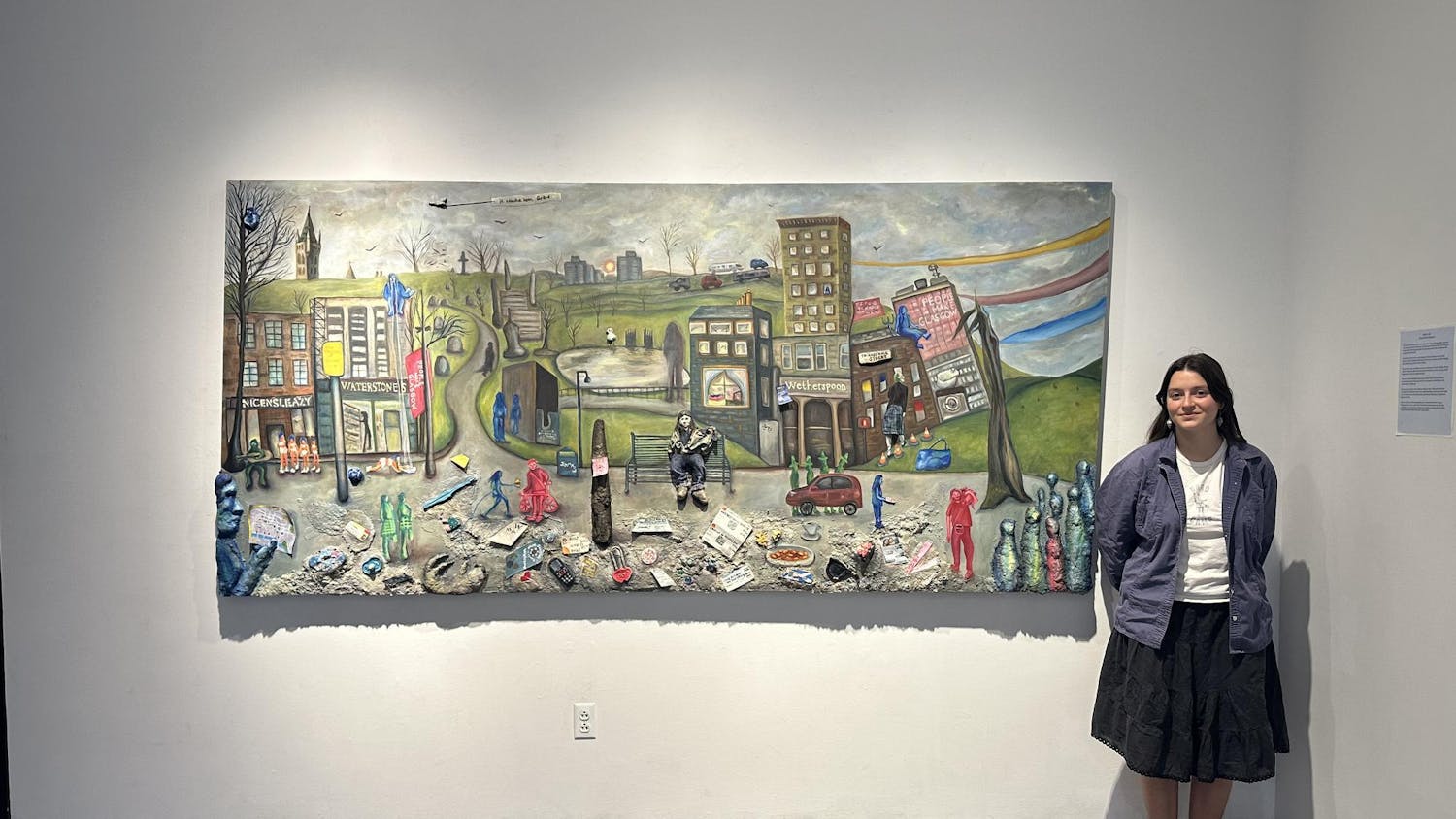Oscar-nominated “End Game” is a film about love, family, healing and grief, featuring some of the hardest conversations many face in their lives — conversations about end-of-life care for gravely ill loved ones.
The film, nominated for Best Documentary Short Subject at the 2019 Academy Awards, was produced with the help of Jim Mittelberger ’78 P ’13, the film’s co-executive producer. He is also chief medical officer at Hospice by the Bay in Larkspur, California, as well as a clinical professor of medicine at the University of California, San Francisco.
After Mittelburger spent time working at Oakland’s Highland Hospital and assisting with the conception of the 2012 documentary “The Waiting Room,” he was inspired to approach producer William B. Hirsch with the idea to make a movie about end-of-life care. “I believe to help people make good decisions … you need to see to understand. We have such a fear of the unknown,” Mittelberger said.
He also credited the University for inspiring his approach to medical practice. “Brown really stimulated me. … It helped me (to) be both creative and a scientist,” Mittelberger said, referencing how his peers at the University taught him, “you could make a difference.” Entering Brown with his aspirations set on a career away from medicine, Mittelberger said, “I actually came to medicine (because) I liked working with people.” He cites his experience taking care of his grandfather after his time at Brown and before medical school as a defining moment that drove his decision to specialize in hospice and palliative care.
Mittelberger introduced Palliative Care Physician Steven Pantilat to Hirsch, which brought the UCSF’s Medical Center, into the film. “We thought there should be a movie about palliative care that really tells the story of the work that we do,” Pantilat said. Even after getting clearance to film at UCSF, it took multiple years until the documentary was finalized and released.
The film opens at the UCSF Medical Center in the hospital room of Mitra, a 45-year-old cancer patient whose family is grappling with her rapidly progressing disease. Working with UCSF’s palliative care doctors, they consider what choices she would make about her own end-of-life care if she is able.
While end-of-life service accessibility has increased across the nation, “there are still a lot of misunderstandings about what palliative care is,” Pantilat said. The team at UCSF hoped the film would showcase the “interdisciplinary nature of our work — it’s not just doctors, there’s really a team of doctors and nurses and social workers and chaplains,” he said. They also hoped the film would portray the “breadth of palliative care,” and especially the notion that it is not just for people who are on the brink of death. Instead, it can help patients at all stages of a disease, Pantilat said.
The film features another hospice care facility in an effort to articulate the diversity of care available to people at various stages in the end-of-life experience. The videographers also visit the Zen Hospice Guest House, a buddhist-inspired care facility housed in a San Francisco Victorian. BJ Miller, a palliative care physician at UCSF, is shown visiting patients at the house. In an interview included in the documentary, Miller explained his personal experience with suffering — he lost both of his legs below the knee and his left arm below the elbow after being electrocuted in an accident when he was 19 and a sophomore at Princeton. “I did brush up against death myself,” Miller said in the film. “It was a spontaneous … immediate, crazy experience.”
The guest house closed in 2018 due to lack of funding, but the work of Zen Hospice remains strong in San Francisco through ongoing volunteer education efforts, Pantilat said.
“What I tell patients is: you have doctors who focus on the illness itself. … Our focus is more on the whole person and your quality of life.” Palliative care physicians address symptom management, lead discussions around hard decisions facing patients and their families and provide emotional and spiritual support. Palliative care is the effort to help you “live as well as possible for as long as possible,” Pantilat said. Hospice, which is what many traditionally think about when considering end-of-life care, is only one aspect of the end-of-life experience.
“Ever since I was at Brown, I’ve really been interested in … making healthcare focus on the needs of people rather than the needs of doctors and hospitals,” Mittelberger said.
“End Game” premiered at the Sundance Film Festival in 2018 and has since been purchased by Netflix. It was directed by Robert Epstein and Jeffrey Friedman, who have worked on films together in the past. Neither are newcomers to the awards circuit — both won the Academy Award for Best Documentary Feature for “Common Threads: Stories from the Quilt” in 1990, and Epstein for “The Times of Harvey Milk,” in 1985.
Filmed in cinéma vérité style, the documentary has no voice-over and avoids interjections by the filmmakers. While some patients or families acknowledge the camera’s presence, the camera often simply inhabits their rooms, capturing honest conversations. While interviews with palliative care professionals are dispersed throughout, it is the patients’ stories that make up the bulk of the film’s 40 minutes. In that short time, viewers are made intimately aware of the challenges each character — patient or family member — faces while accepting, denying or preparing for death.
“We decided we wanted to show real people interacting in an environment that we thought demonstrated good care,” Mittelberger said. “My goal is to have people see beauty and have dignity … in all parts of life.”
The potential for beauty in death was a theme at the core of the film — in a closing scene, as mourners place flowers on the body of a loved one, Miller says “Grief ain’t easy, but it can be poignant and gorgeous.”
Mittelberger said he would be “cheering with some of (his) co-workers” when the short documentary winner is announced this Sunday, Feb. 24.





